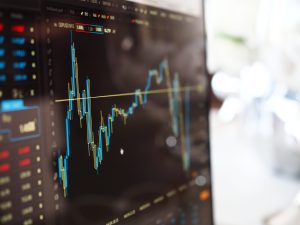In today’s global economy
the foreign exchange market, commonly known as Forex, stands as a cornerstone of financial trading. A dynamic platform where currencies are bought and sold, Forex trading offers immense potential for profit but also carries substantial risks for the uninitiated.
For beginners venturing into this complex world, mastering Forex involves more than just grasping basic trading concepts. It requires a comprehensive understanding of market dynamics, risk management strategies, and constant adaptation to ever-changing conditions.
To start, novice traders must comprehend the fundamental principles governing currency markets. These markets operate 24/7 across different time zones and are influenced by a myriad of factors such as geopolitical events, economic data releases, and central bank policies. Aspiring traders need to learn how these factors impact currency values and market trends.

A crucial aspect of mastering Forex is developing a sound trading strategy. Successful traders often employ a blend of technical analysis, using charts and indicators to predict price movements, and fundamental analysis, which involves assessing economic indicators and news events to anticipate market shifts.
However, the road to becoming a proficient Forex trader is fraught with challenges. One of the most significant hurdles is managing risk. The allure of high leverage can amplify gains, but it also magnifies potential losses. Novices are advised to start with small investments and employ risk management tools like stop-loss orders to mitigate downside risks.
Moreover, the Forex industry is rife with scams and fraudulent schemes. Aspiring traders must exercise caution and conduct thorough research before choosing a broker or investing in any trading platform. Regulatory bodies like the Commodity Futures Trading Commission (CFTC) and the National Futures Association (NFA) provide resources to verify the legitimacy of brokers and safeguard against fraudulent activities.
For those willing to commit the time and effort, mastering Forex can lead to substantial financial rewards. However, it requires discipline, continuous learning, and a realistic approach to expectations. Not everyone succeeds in Forex trading, and it’s essential to acknowledge and manage the possibility of losses.
In conclusion, while Forex trading offers enticing opportunities for beginners, it demands dedication, education, and a cautious approach. Mastering this financial domain is a journey that requires not just theoretical knowledge but also practical experience and a resilient mindset.
Opinion Piece
Mastering Forex: A Beginner’s Guide to Trading Currency Markets is both an enticing prospect and a perilous journey. As someone who has navigated the twists and turns of the financial markets, I cannot stress enough the significance of education and prudence for aspiring Forex traders.
While the potential for profits in Forex is alluring, the market’s inherent volatility demands a respectful approach. The path to mastery involves continuous learning, honing strategies, and staying abreast of global economic and geopolitical developments. However, it’s crucial to acknowledge that not everyone emerges victorious in this arena. The risks are substantial, and losses are an inevitable part of the trading journey.
Moreover, the industry’s landscape is dotted with unscrupulous actors seeking to exploit inexperienced traders. It’s imperative for beginners to exercise caution, conduct meticulous research, and verify the credibility of brokers and trading platforms before diving in.
In my view, successful Forex trading isn’t merely about making profits; it’s about managing risks, learning from failures, and adhering to strict discipline. Aspiring traders should begin with a humble approach, focusing on education, developing a robust strategy, and embracing a mindset that acknowledges the potential for setbacks.
Ultimately, while the rewards in Forex can be significant, they are often accompanied by commensurate risks. Aspiring traders must approach this domain with realistic expectations, a hunger for learning, and an unwavering commitment to ethical and prudent trading practices.
Research and Verification Techniques
In the realm of reporting on Forex trading or any financial topic, ensuring accuracy and reliability is paramount. To verify information and uncover credible sources, journalists employ several techniques:
- Cross-referencing Sources: Confirming information from multiple independent sources helps in verifying its accuracy and credibility.
- Consulting Experts: Interviewing industry experts, economists, experienced traders, or financial advisors can provide valuable insights and validate information.
- Checking Regulatory Agencies: Referencing official statements or databases from regulatory bodies such as the CFTC, NFA, or Securities and Exchange Commission (SEC) can help confirm the legitimacy of brokers or trading platforms.
- Analyzing Data and Market Trends: Relying on reputable financial data providers and analyzing market trends from reliable sources assists in presenting accurate and up-to-date information.
- Fact-Checking Tools: Utilizing fact-checking tools and databases like FactCheck.org, Snopes, or Reuters Fact Check helps verify claims and debunk misinformation.
In adhering to journalistic ethics, maintaining objectivity, accuracy, and integrity in reporting is essential. Providing a comprehensive view of the subject while remaining unbiased is crucial for delivering credible and informative content to readers.











